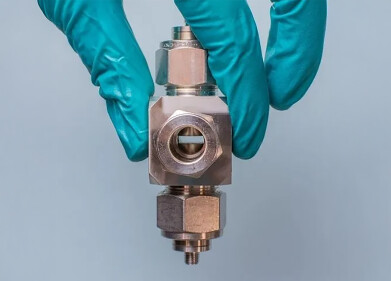Analytical Instrumentation
Is Carbon Capture Vital for UK Oil?
Dec 11 2019
In a new Energy Transition Outlook report published by trade body Oil and Gas UK (OGUK), experts predict the development of carbon capture use and storage technology (CCUS) will emerge as an integral part of the national energy sector.
Marketed by the International Energy Agency (IEA) as an "important emissions reduction technology that can be applied across the energy system", CCUS describes the process of capturing CO2 emissions from industrial activity or fuel combustion, then using it as a resource to create marketable products or alternatively, store it deep underground in geological formations.
OGUK demands “urgent action” on CCUS projects
The paper demands “urgent action” from the government, including financial support for five major industrial CCUS projects proposed for the end of 2020. If the projects go ahead, OGUK predicts the UK could capture up to 30 million tonnes of carbon. As well as government support, the paper says more focus needs to be placed on developing low carbon hydrogen as a potential fuel for powering cars and heating homes.
"The oil and gas sector will have to earn its position in this new energy world, cutting its own emissions and working with governments and regulators to progress the five CCUS projects which now need to move forward into the next phase and developing hydrogen," asserts Deirdre Michie, Chief Executive at OGUK. “As our report shows, there is lots of work to be done in a huge market which is only getting bigger as global demand for energy continues to grow”
Moving towards net-zero targets with CCUS
One of the major themes underlined in the report was the ongoing development and growth of the British oil and gas sector. Instead of moving towards imports, the OGUK says government energy policy should pursue projects that champion a low-carbon environment and support the country's ultimate net-zero target. For the OGUK, championing CCUS is a key part of this goal.
Michie refers to a Climate Change Committee report published earlier this year, which cited CCUS as "critical" sector for helping the UK decarbonise and reach its net-zero goals. "Our challenge, working with others including the OGTC’s Net Zero Solutions Centre, is to realize CCUS and other low carbon technologies as an opportunity for British businesses,” she says.
From spearheading CCUS technology to developing hydrocarbon fuels, minimising emissions is now front of mind for the energy industry. For a closer look at the latest spectrophotometric/nephelometer optical technology being used to improve documentation, don't miss 'Bringing Clarity and Haze Ratings into the Modern World – ASTM D8148 provides the perfect solution'
Digital Edition
PIN 25.5 Oct/Nov 2024
November 2024
Analytical Instrumentation - Picturing Viscosity – How Can a Viscometer or a Rheometer Benefit You? - Sustainable Grease Formulations: Evaluating Key Performance Parameters and Testing Method...
View all digital editions
Events
Dec 03 2024 Dusseldorf, Germany
Dec 08 2024 Anaheim, CA, USA
Turkey & Black Sea Oil and Gas
Dec 11 2024 Istanbul, Turkey
Dec 19 2024 Aurangabad, India
Jan 20 2025 San Diego, CA, USA



















